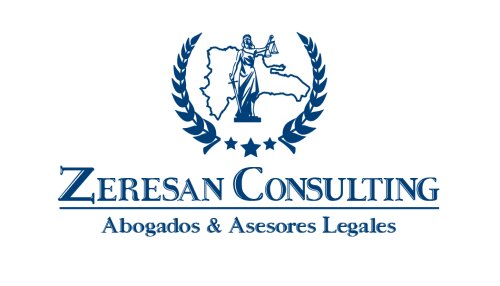Best Housing, Construction & Development Lawyers in Santo Domingo Este
Share your needs with us, get contacted by law firms.
Free. Takes 2 min.
Free Guide to Hiring a Real Estate Lawyer
List of the best lawyers in Santo Domingo Este, Dominican Republic
About Housing, Construction & Development Law in Santo Domingo Este, Dominican Republic
The housing, construction, and development sector in Santo Domingo Este, Dominican Republic, is crucial for supporting the region's growing urban population. It encompasses the legal aspects of property development, architectural design compliance, building regulations, zoning, and land use management. The city is characterized by its rapidly expanding infrastructure and urban areas, requiring comprehensive regulatory frameworks to ensure sustainable and organized growth. In this context, housing, construction, and development law offers a structured legal foundation to manage projects while aligning with environmental and safety standards.
Why You May Need a Lawyer
Engaging a lawyer in housing, construction, and development matters can be essential for various reasons. Key situations where you may require legal assistance include:
- Disputes over property ownership or boundaries.
- Issues with contractor performance or contract breaches in construction projects.
- Compliance with local zoning and environmental regulations.
- Navigating the complexities of real estate transactions.
- Dealing with permits and licenses for new developments.
- Resolving tenant and landlord conflicts.
- Assisting with liability and insurance claims during construction.
- Advisory services for foreign investors in real estate projects.
Local Laws Overview
The key aspects of local laws relevant to housing, construction, and development in Santo Domingo Este include:
- The General Law of Urban Planning and Construction: Governs zoning, construction, and land-use activities, ensuring alignment with national urban development goals.
- Environmental Regulations: Protect natural resources and require environmental impact assessments for major projects.
- Real Estate Law: Covers property rights, registration processes, and real estate transactions to secure ownership and prevent fraud.
- Tenancy Laws: Define the rights and obligations of landlords and tenants, addressing issues like rent controls and eviction processes.
- Specific Municipal Regulations: These can vary by district and are crucial for adherence to local standards in construction and urban development.
Frequently Asked Questions
What are the basic steps for buying property in Santo Domingo Este?
The basic steps include finding a property, negotiating terms, conducting due diligence, signing a purchase agreement, securing financing if needed, and registering the property with the local Land Registry.
How can I resolve a construction contract dispute?
Dispute resolution can involve negotiation, mediation, or litigation depending on the severity of the breach and terms of the contract. Consulting a lawyer can guide the appropriate course of action.
What permits are needed for new construction?
New construction typically requires building permits, zoning approval, and environmental clearance depending on the project's scale and location. A legal advisor can navigate these requirements effectively.
How do the zoning laws affect my development project?
Zoning laws determine the land use, type of buildings allowed, and project densities. Understanding these regulations is crucial for planning compliant development projects.
Can foreigners buy property in Santo Domingo Este?
Yes, foreigners can buy property but must comply with the same legal processes as Dominican citizens, including due diligence and registration.
What are the risks of not complying with environmental regulations?
Non-compliance can lead to fines, legal disputes, project delays, or even cancellation of building permits. It’s vital to conduct required environmental assessments and adhere to regulations.
How are landlord and tenant disputes resolved legally?
Disputes are commonly resolved through mediation, arbitration, or court processes. Legal consultation can help navigate tenancy laws and resolve issues efficiently.
What is the role of an architect in compliance with construction laws?
An architect ensures that a construction project meets legal codes and structural safety standards and often assists in obtaining necessary project approvals.
How do I initiate a real estate development project?
Initiating a project involves acquiring land, securing financing, obtaining permits, and aligning with local land and construction regulations.
What legal protection do I have against fraudulent real estate transactions?
Conducting due diligence, consulting legal experts, and ensuring proper registration of transactions safeguard against fraud. Legal recourse is available for fraudulent activities.
Additional Resources
For further assistance, consider exploring these resources:
- Ministry of Public Works and Communications (MOPC): Offers guidance on infrastructure projects and public works regulations.
- Superintendency of Banks: Provides information on real estate financing and mortgage options.
- National Housing Institute (INVI): A key resource for housing policies and programs.
- Local Bar Associations: Offer listings of certified legal professionals specializing in housing and construction law.
Next Steps
If you need legal assistance in housing, construction, and development, consider the following steps:
- Identify your specific legal needs and potential issues.
- Research and contact attorneys specializing in real estate, construction, or urban planning law.
- Prepare relevant documents and information pertinent to your case or inquiry.
- Schedule consultations to discuss your situation and explore viable legal options.
- Decide on a lawyer or legal team that aligns with your needs and preferences.
Lawzana helps you find the best lawyers and law firms in Santo Domingo Este through a curated and pre-screened list of qualified legal professionals. Our platform offers rankings and detailed profiles of attorneys and law firms, allowing you to compare based on practice areas, including Housing, Construction & Development, experience, and client feedback.
Each profile includes a description of the firm's areas of practice, client reviews, team members and partners, year of establishment, spoken languages, office locations, contact information, social media presence, and any published articles or resources. Most firms on our platform speak English and are experienced in both local and international legal matters.
Get a quote from top-rated law firms in Santo Domingo Este, Dominican Republic — quickly, securely, and without unnecessary hassle.
Disclaimer:
The information provided on this page is for general informational purposes only and does not constitute legal advice. While we strive to ensure the accuracy and relevance of the content, legal information may change over time, and interpretations of the law can vary. You should always consult with a qualified legal professional for advice specific to your situation.
We disclaim all liability for actions taken or not taken based on the content of this page. If you believe any information is incorrect or outdated, please contact us, and we will review and update it where appropriate.












